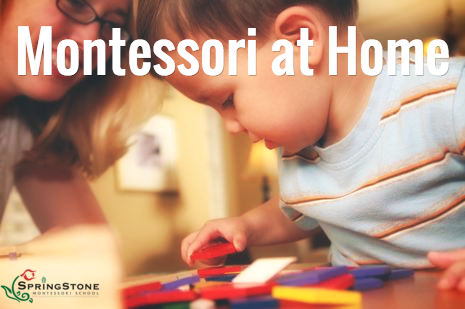Helping your Child and Yourself Deal with Separation Anxiety
For the end of the year, we chose the topic of separation anxiety.
Our goal is to provide some helpful tips for our families to help themselves and their child overcome separation anxiety.
First, it is absolutely normal for a child to need time to adjust to a their new Montessori learning environment, as well as the child’s parents needing support to come to terms with their child taking their first step towards independence. This is especially true if your child has not attended any school activities to-date, and this is the first time away from their parents for an extended period of time.
Separation anxiety is often caused by fear of the unknown when it comes to a new situation; it can relate to something that is happening at home, or even to something that the child has just experienced before arriving at school. No matter what the cause, it is heart-wrenching for everyone involved.
As teachers we need to be able to nurture the child who is upset, provide support to the parents who feel like they are abandoning their child, all while helping the other children feel at ease – as they may start feeling anxious with seeing one of their classmates so distressed. It is one of the hardest things to deal with as a parent, and it can be very stressful for a Montessori classroom teacher as well.
Just keep one thing in mind – Separation Anxiety is a phase; it is perfectly natural, and it will pass.



Let’s look at some tips to help our Montessori parents cope with Separation Anxiety:
- Make your goodbye prompt and positive. This sounds easy, but it can often be one of the most difficult things to do. Giving your child “one more minute” or staying to spend some extra time to work with your child simply prolongs the inevitable. As a parent, the best thing you can do is to give your child a hug and kiss, say, “I love you” and reassure him/her that you will be back soon.
- Establish a goodbye routine. Young children crave routine and Montessori parents who establish a consistent goodbye routine usually have better luck with successful goodbyes. It can be a secret handshake or special hand gesture, a kiss on the forehead, a reassuring thumbs-up or some other special routine you establish with your child. When you make this routine and something your child can expect from you daily, your child is likely to go to school much more willingly and that special moment between the two of you is a great way to start the day and provide that sense of reassurance.
- Send along a family picture with your child that can remain at school. Allow your child to choose the family picture they would like to take to school, and whenever they may feel sad or miss you, they can look at this picture for comfort.
- Trust your child’s teacher. This may be difficult to do when you do not yet know your child’s Montessori teacher that well, but keep in mind that Montessori teachers have chosen this profession because they love children and they have a wealth of ideas and strategies to help settle a child who is feeling upset. The strategies might involve anything from a nurturing hug, redirection, pairing them up with another Montessori student or simply keeping the child close until he/she is ready to engage with an activity. Ask your child’s Montessori teacher to step in to help with goodbyes when you give the sign that you are ready to go.
- Acknowledge how your child is feeling. It is important to accept and respect your child’s temporary unhappiness as it is very real and very normal. Say things like “I know you feel sad when Mommy leaves, but you will have a good time, and I will be back very soon.” Avoid the temptation to pressure your child not to cry or to offer bribes for “good behavior”. Learning to cope with sadness is an important learning process for your child.
- Never sneak out on your child. As tempting as it may be, sneaking out the door can make matters worse. Although you do not have to stay to witness a meltdown, it may be very upsetting for your child when they realize Mom or Dad has simply disappeared without saying goodbye, and it can make the next day even more difficult. The best thing you can do for your child is to deal directly with the situation and before you know it, the tearful goodbyes will be no more. Keep in mind that you want your child to know unequivocally that they can trust you.
- Ask for help. Sometimes stepping back from the drop off routine can make a huge difference in how your child reacts. Often, a child who experiences separation anxiety with one parent is absolutely fine if the other parent does the drop off. You could also try having another relative, close friend or grandparent give it a try for a few days.
- Do not linger. As a parent, we know how reassuring it can be to stay to peek at your child through the window. However, for the child, it can be pure torture. As a child, seeing your parent when you are upset, but not being able to be with your parent is not a good feeling. Our suggestion for you will be to leave quickly and if you are feeling really uneasy, watch the school monitors or call the school in 15-20 minutes to ask how your child is doing. Chances are very likely that your child settled within a few minutes.
- Stay calm and be enthusiastic. Modeling the appropriate behavior is key to a smooth transition from home to the Montessori classroom, so try very hard to ensure your child does not sense your anxiety. Talk about how much fun Montessori school will be, talk about their friends and classmates. Discuss the different works they might want to choose and that you cannot wait to hear about their day when you pick them up.
- Always be on time and follow a routine. Arriving late can often spark separation anxiety. Arriving late can be upsetting to some children as the school day has already started. Give yourselves plenty of time in the morning. Children often get anxious when rushed, so do your best to give your child extra time in the morning to get ready, following a simple routine, and to arrive at school on time with the group. Additionally, it is important to be punctual when picking up your child. If you are late, it can cause your child even more anxiety and make dropping them off the next time that much harder.
- Encourage friendships. Make a point to set up ‘playdates’ for your child. Invite children from the Montessori class over, so your child can make friendships that will in turn make the transition to the new Montessori environment easier.
Be prepared for regression
Just when you think your child has conquered his/her feelings of separation anxiety, along comes a weekend or an illness that keeps your child home for a few days, and you are right back to square one. As frustrating and upsetting as this can be, it is perfectly normal. Stick to the above strategies, and you should notice a significant difference in a couple of days.
Wishing everyone a healthy, happy and prosperous New Year!
We are looking forward to sharing more resources in 2019!

